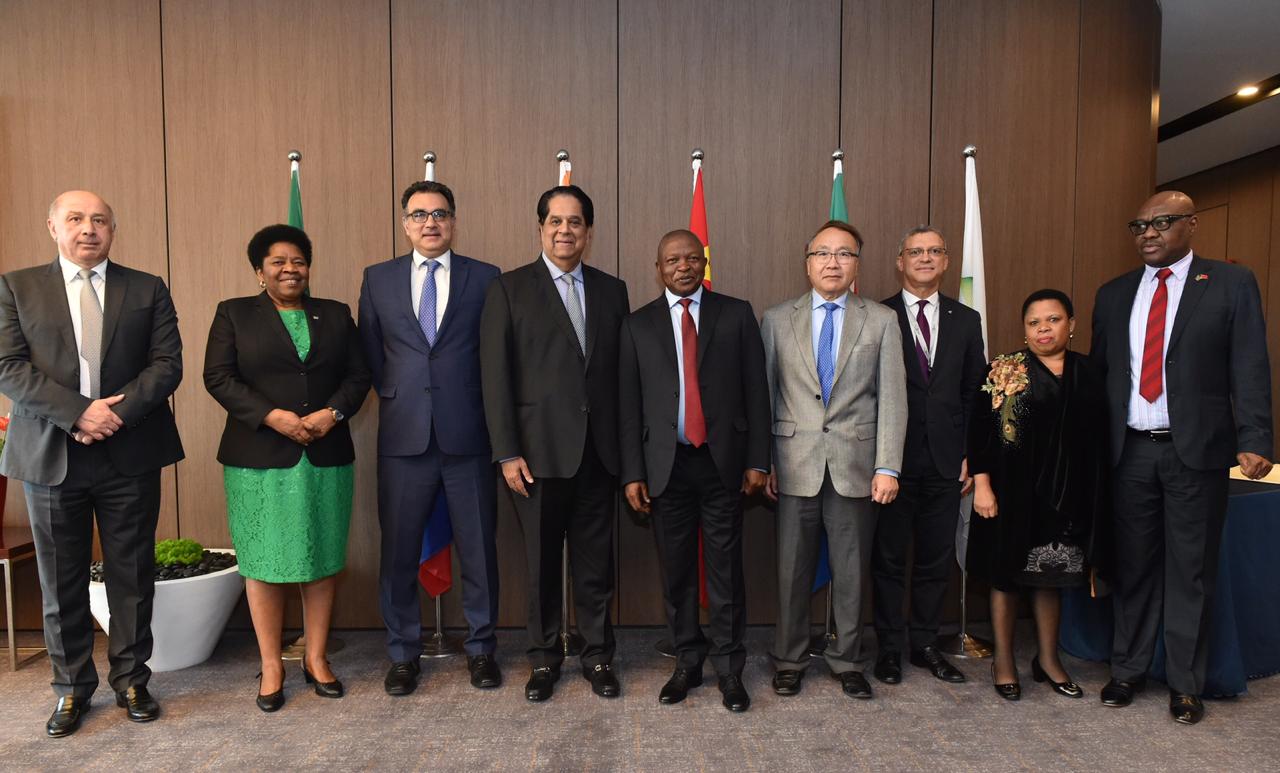Riyaz Patel
Deputy President David Mabuza touched down in Shanghai, China Friday for the trade and investment leg of the 7th South Africa–China Bi-National Commission (BNC).
Mabuza is on a working visit to China to strengthen the South–South cooperation and to bolster the already strong bilateral, political and economic ties between Pretoria and Beijing.

South Africa and China are celebrating the 21st anniversary of their diplomatic relations, cemented on the Comprehensive Strategic Partnership Agreement that was signed in 2010.
The Agreement prioritised, amongst others, improving the structure of trade between the two countries by working towards a more balanced trade profile, while enhancing trade in value-added manufactured products.
South Africa currently has about 26 companies who have invested in China with a capital expenditure of R88bn between January 2003 and August 2019.
China on the other hand has a total of 88 companies in South Africa with a capital expenditure of R116bn over the same period.
“Whereas South Africa and China enjoy solid economic relations, we are determined to increase the amount of trade and investment between the two countries particularly in the areas of agricultural produce, value-added goods, technology and investment in infrastructure development among others, said South Africa’s Deputy President.
“China remains our largest trading partner and we believe both our countries have much to benefit from this partnership.”
Mabuza is scheduled to engage with close to 100 business leaders and representatives at the China-SA Business Forum.
The Deputy President will use the engagements to outline the many incentives offered by the South African Government to attract more direct foreign investment, and to reassure investors that the country presents a stable and attractive investment climate.
Mabuza will also officially open the South Africa Import Pavilion at the Greenland Global Community Trading Hub, which provides South African firms an opportunity to showcase their products on a global platform.

Mabuza kicked of his Shanghai sojourn with a courtesy call on K.V. Kamath, President of the New Development Bank (NDB), otherwise known as the BRICS Bank, whose Headquarters are in Shanghai.
In April this year, the NDB hosted its 4th Annual Meeting in Cape Town where the Bank announced it would be ramping up operations in South Africa and strengthening its project pipeline in the country.
The Bank is fully committed to bridging the infrastructure gap in South Africa, supporting projects tailored to the country’s needs and fully respecting its development priorities and strategies.
South African projects approved by the NDB in 2019:
– South African National Toll Roads Strengthening and Improvement
Programme (ZAR 7 billion)
– Environmental Protection Project for Medupi Thermal Power
Plant (USD 480 million loan to Eskom)
– Renewable Energy Sector Development Project (proceeds of the
Bank’s ZAR 1.150billion, approx. USD 80 million loan will be
on-lent by the Industrial Development Corporation of South Africa)
– Lesotho Highlands Water Project (NDB will provide a project loan
of ZAR 3.2 billion (approx. USD 220 million ) to Trans-Caledon
Tunnel Authority, for the implementation of Phase II of Lesotho
Highlands Water Project and financing the construction of water
transfer infrastructure to the benefit of South Africa
The NDB was established by the so-called BRICS nations: Brazil, Russia, India, China and South Africa to mobilize resources for infrastructure and sustainable development projects in BRICS and other emerging economies and developing countries.

The Bank complements the existing efforts of multilateral and regional financial institutions facilitating global growth and development.
The Brics bank further supports public or private projects through loans, guarantees, equity participation and other financial instruments.
